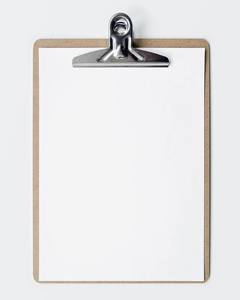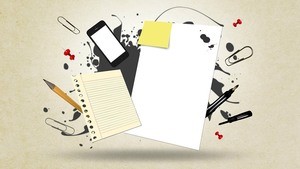Want to know how to make notes your brain will remember?
We all know we need to make notes when we revise, don’t we?
But does everyone know the best sort of notes to make?
Probably not. Make these mistakes and more than likely, your brain will forget what you’re learning!
Using lined paper
The vast majority of students learn faster and more thoroughly when making notes on plain paper, not lined.
Why is this, I hear you ask.
Well, we’ve evolved to process visual information very quickly. (50 milliseconds, or so I’m told!) You can imagine how first, noticing and then secondly, assessing visual information (a wild animal appearing behind a bush, for example) was a great asset to our ancestors.
Physiologically we’re virtually no different from them and so we still have a large part of our brain involved in processing visual information.

In short, we’re good at it!
I’m all for tailoring your studying to your natural skills, to give you every advantage. Why struggle when you can make things much easier for yourself?
We know, from decades of research now, that the more visual your notes are, the easier you will find it later on to remember them. And isn’t that what you want?
So, the reason for not using lined paper, but plain paper instead, is so that you can make full use of your visual skills.
You see, the thing is, if you make notes on lined paper, you are likely to write full sentences in a linear fashion, aren’t you?
In addition, we also know from research, that the more you write, the more you forget!
So, the last thing you should be doing is writing lots and lots, on horizontal lines – if you’re intending to remember what you’re writing, that is.
Instead, you are better off using plain paper and arranging your notes in patterns, with arrows and other symbols; with images and diagrams and using colour and shapes to group similar ideas together and to separate them from other ideas. (See previous articles for details.)
Using a notebook

You’re better off using single sheets of paper, than a beautiful notebook.
Why?
Because, while it might seem like a good idea to keep all your study notes together in a book, in actual fact, while you are attempting to learn a chunk of information, and as you create your study notes, you will discover new and better ways of representing the information that makes it easier for your brain to remember them.
That will mean chucking out the original notes and keeping the better ones.
With a note book, you’ll be disinclined to do that and more likely to focus on making beautiful notes rather than effective notes.
Always remember why you are making them in the first place.
Using a computer

While typing up your notes on a computer may seem very organised and neat too, it’s much easier for your brain to go on autopilot instead of actively manipulating the information you are writing.
You don’t want to send your brain to sleep. Instead you need to ‘digest’ the information you are absorbing, and it uses (for ‘uses’ read lights up) more of your brain if you are hand-drawing notes instead of typing.
Look, I don’t make the rules! 🙂
I’m just telling you what will make your life easier in the long run.
Don’t try and reinvent the wheel – do what works and pass your exams easily.

Why you should ditch the computer and make study notes by hand
Especially these days, when we are so dependent on our trusty computers both for finding information and also for filing it, it’s tempting to make our study notes on them

